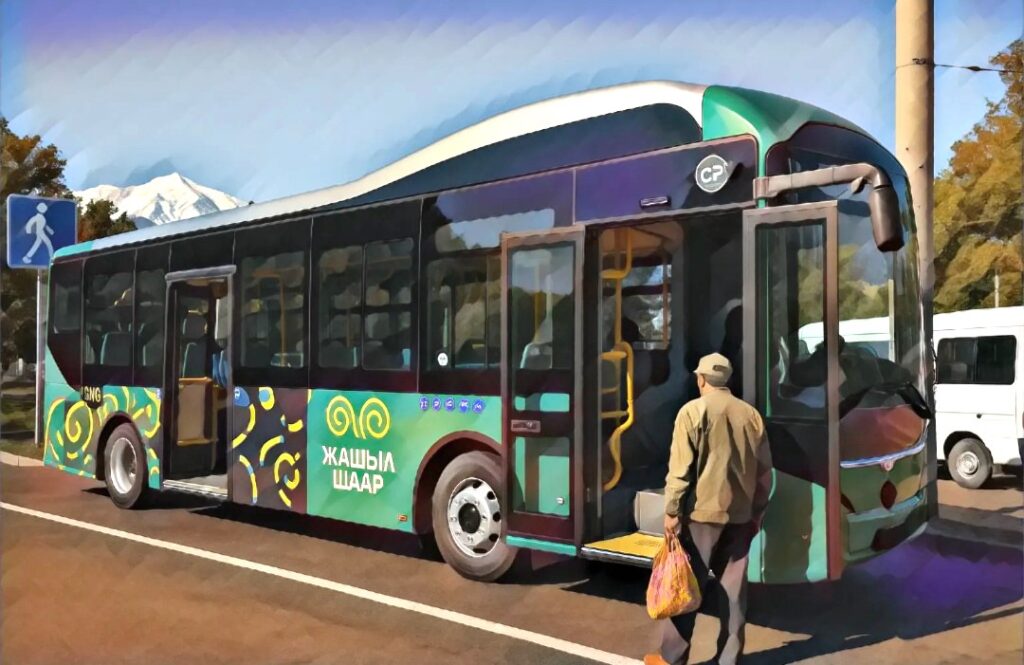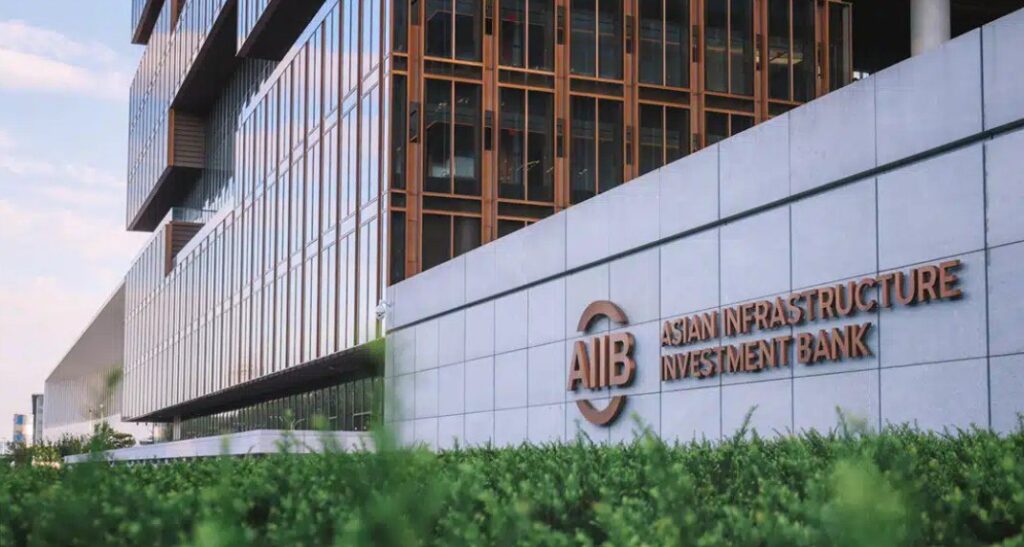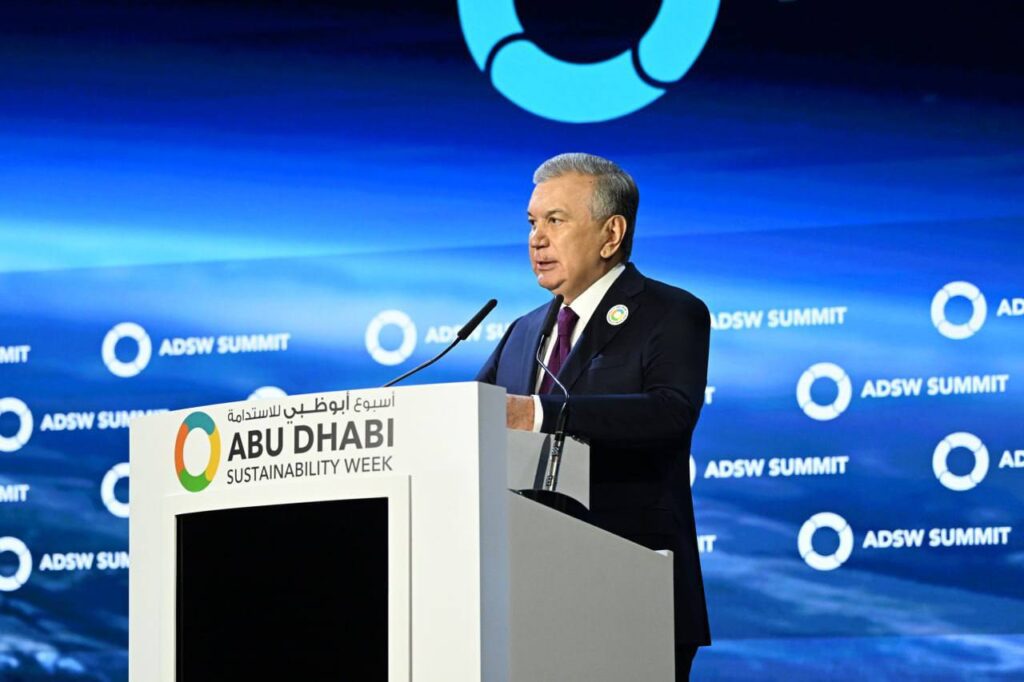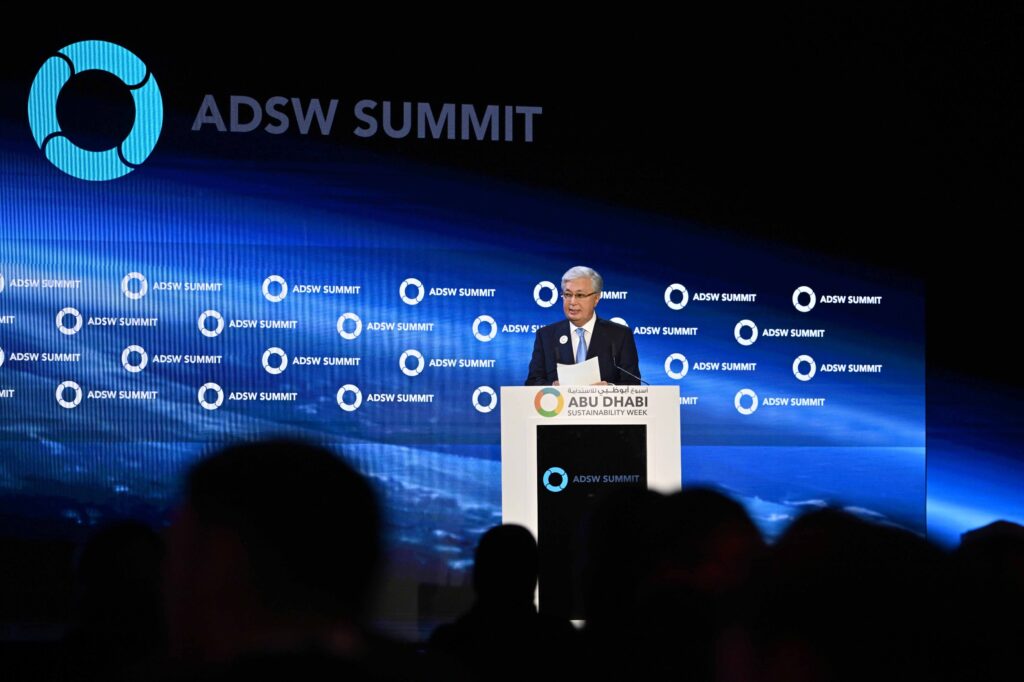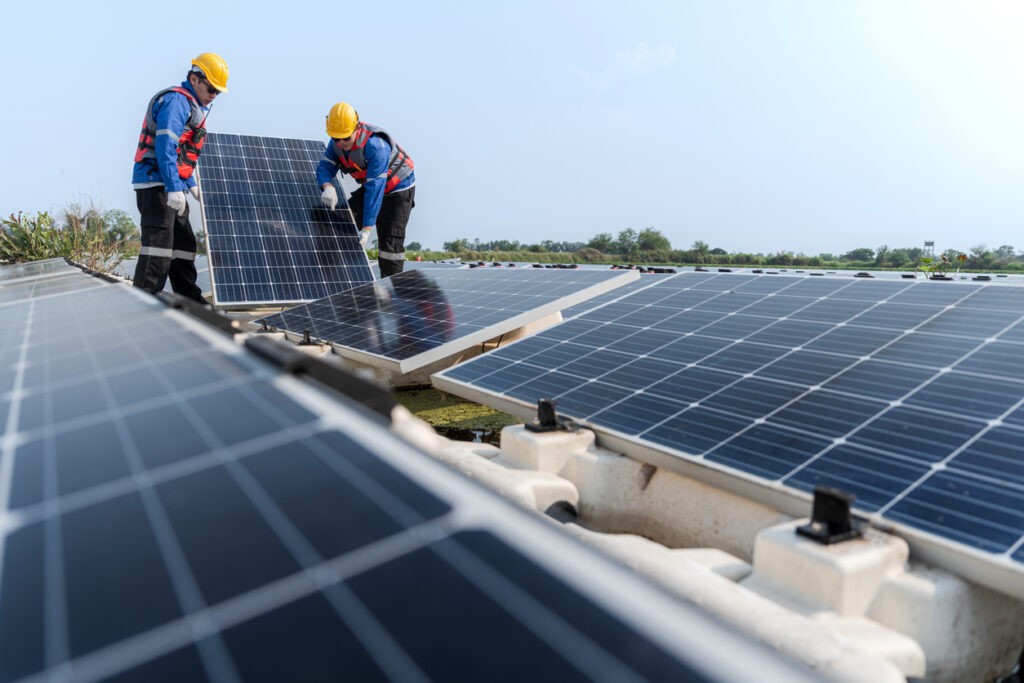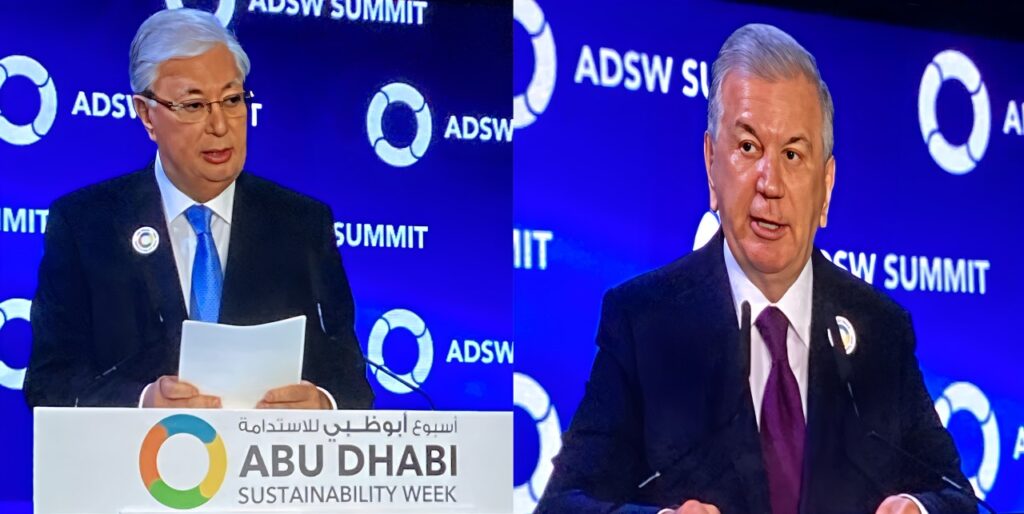With its headquarters in Washington, D.C. the International Finance Corporation (IFC) was established in 1956 as the private-sector arm of the World Bank. The institution offers advisory, and asset-management services to promote investment in developing countries. Recent ventures in Central Asia include solar power projects in Uzbekistan and Kyrgyzstan, and an entrepreneurship scheme for women and young people in Tajikistan. TCA spoke with Hela Cheikhrouhou, IFC Vice President for the Middle East, Central Asia, Türkiye, Afghanistan, and Pakistan about the IFC’s work in Central Asia.
TCA: Can you please give us an overview of IFC’s performance in Central Asia for fiscal year 2024 (July 1, 2023, to June 30, 2024)?
IFC had a pivotal year in Central Asia, making strides in sustainable development and inclusive growth across the region. Our efforts concentrated on climate finance, infrastructure, agriculture, and supporting smaller businesses. By coupling investments with advisory support, we helped expand the role of the private sector, creating jobs, promoting financial inclusion, strengthening infrastructure, and supporting the region’s green transition.
In the fiscal year 2024, IFC committed over $1 billion to Central Asia. This includes about $400 million in long-term financing from our own account, $600 million in mobilization, and $35 million in short-term trade and supply-chain finance to facilitate trade flows. Alongside these financial commitments, we engaged in advisory projects focused on improving financial inclusion, developing innovative public-private partnerships (PPPs), and advancing climate initiatives and gender equality.
Our results this year underscore our commitment to fostering sustainable, inclusive growth, and enhancing the resilience and sustainability of Central Asian economies.
TCA: Can you highlight some of the IFC’s key achievements in Central Asia this year?
In addition to the strong financial commitments mentioned earlier, IFC expanded its presence in various sectors, including finance, capital markets, renewable energy, agriculture, and infrastructure. Through our advisory services, we helped structure impactful PPPs at the sectoral level.
A major focus this year has been strengthening local financial markets. IFC invested $228 million across ten financial institutions in Kazakhstan, the Kyrgyz Republic, Tajikistan, and Uzbekistan. Up to half this amount was dedicated to supporting women entrepreneurs and rural enterprises. We also helped these financial institutions expand portfolios related to their micro, small, and medium enterprise (MSME) businesses, advance climate finance, foster digital transformation, and issue the region’s first sustainability, social, and green bonds. Supporting MSMEs has enabled entrepreneurs to grow their businesses and generate employment. In the past fiscal year alone, IFC-supported projects created around 35,000 direct jobs, including opportunities for over 13,000 women across the region.
These efforts have been further bolstered by targeted investments and projects in individual countries across the region.
In Uzbekistan, IFC, together with the World Bank, financed a new solar plant equipped with the country’s first battery energy storage system. Once completed, the plant is expected to provide electricity access to around 75,000 households in the Bukhara region.
As part of its broader support for the Uzbek government’s efforts to reform its chemical sector, IFC assisted the State Asset Management Agency in privatizing Ferganaazot, a local nitrogen-based fertilizer producer. The asset was acquired by Indorama Corporation, an experienced international investor and partner of IFC, which plans to invest around $100 million in modernizing and upgrading Ferganaazot’s production facilities.
Additionally, we financed Anglesey Food LLC, the country’s leading grocery retailer operating the Korzinka chain, to support the construction of a state-of-the-art ‘green’ distribution center, facilitating the expansion of Korzinka’s retail store network. With IFC’s support, the company recently became the first in Central Asia to obtain EDGE gender certification, marking a significant milestone in promoting gender equality in the workplace.
In Tajikistan, IFC invested in the nation’s first green bond, issued by Eskhata Bank, which will support climate-smart initiatives and MSMEs engaged in environmental projects. As a strategic advisor, IFC assists the Tajik government in structuring a PPP to mobilize private sector expertise and capital for its inaugural 200-megawatt solar plant in the Sughd region. This landmark project is expected to significantly enhance Tajikistan’s solar energy capacity, mobilizing up to $200 million in private financing.
In Kazakhstan and the Kyrgyz Republic, IFC is not only focused on enhancing financial inclusion but also actively pursuing a diverse range of opportunities. These initiatives include PPPs in areas such as drinking water supply, renewable energy – including networked geothermal solutions for heating and cooling – railway projects as part of the Middle Corridor development, and introducing the first municipal green bonds in Central Asia. Additionally, IFC supports Kazakhstan’s accelerated methane abatement efforts in line with the Global Methane Pledge.
These achievements underscore IFC’s commitment to driving sustainable and inclusive development in Central Asia. We will continue collaborating closely with our partners to foster the region’s growth and resilience in the years ahead.
TCA: What are some of the opportunities and challenges in Central Asia?
Central Asia has made impressive progress in its development over the past two decades, underpinned by robust growth, averaging more than 6% per annum. Going forward, the economic opportunities for Central Asian countries are ample. By embracing economic openness, fostering mutually beneficial cooperation, and coordinating efforts, the region can achieve a qualitative breakthrough in its development while reducing vulnerability to external shocks through the promotion of internal growth drivers.
Looking ahead, Central Asia’s strategic significance in the Eurasian space is poised to grow, positioning it as an important player for neighboring countries and key economic partners. The region has a historic opportunity to leverage its transit position and expand into external markets through emerging international transport corridors. With its abundant energy resources and considerable potential for renewable energy, implementing energy projects – particularly in renewable sectors – will enhance the energy mix and create opportunities for future electricity exports.
However, unlocking the region’s economic potential requires coping with several challenges. These include landlocked geography, reliance on commodity exports, low levels of financial development, and exposure to the negative impacts of climate change. While overcoming these obstacles is crucial, it is equally important to seize opportunities in the global economy and develop and adapt digital and green technologies.
Going forward, creating new and better jobs is critical for Central Asia. As young countries, the region’s states need to create many jobs quickly. For example, by 2030, Uzbekistan will have the fifth-largest labor force in the Eastern Europe and Central Asia (ECA) region. The Kyrgyz Republic’s potential workforce is growing at about 2% per annum – faster than some of its neighbors in the ECA region. Job creation, though, has not kept pace with the increasing population. Job creation offers the surest path out of poverty, and I want to further collaborate with partners in Central Asia to ensure we achieve progress on this agenda.
Addressing infrastructure bottlenecks in transport, water, and energy will enhance productivity, expand trade and economic partnerships with the neighboring countries, and diversify production and exports. Improving governance and institutional environment remain vital for accelerating structural economic transformation across the region.
Central Asia is highly vulnerable to climate change, which poses risks to food security, water supply, and the energy mix. Biodiversity conservation is also a pressing concern. To address these issues, the region must undergo a green transformation by investing in resource-saving innovations, modernization of water and agriculture sectors, and reverse desertification.
Collaboration among Central Asian countries is essential for overcoming structural development challenges, particularly in enhancing transport and logistics infrastructure and mitigating climate-related risks. Joint efforts in the water and energy sectors are equally vital given the increased pressure on energy systems and shared river basins.
TCA: Looking ahead, what are IFC’s priorities for Central Asia in the next fiscal year?
In recent years, we have intensified our efforts in the region, maintaining a strong focus on key development challenges such as limited access to finance, significant infrastructure gaps, weak diversification, and unlocking the potential of the private sector. Simultaneously, we are committed to addressing cross-cutting issues like climate change and gender inequality.
IFC aims to deepen its engagement in Central Asia through a combination of investments and advisory services, anchored around three strategic pillars: activating private sector development, enhancing infrastructure connectivity, and facilitating a green transition. While these are common themes across the region, we customize our approach to align with each country’s unique profile and circumstances, informed by thorough research and analysis and discussions with governments, partners, and clients.
We look forward to continuing our collaboration with governments, investors, and development partners to help Central Asia achieve its ambitious development goals and promote sustainable and inclusive growth. This effort will be transformative not only for the region’s economies but also for its people.

